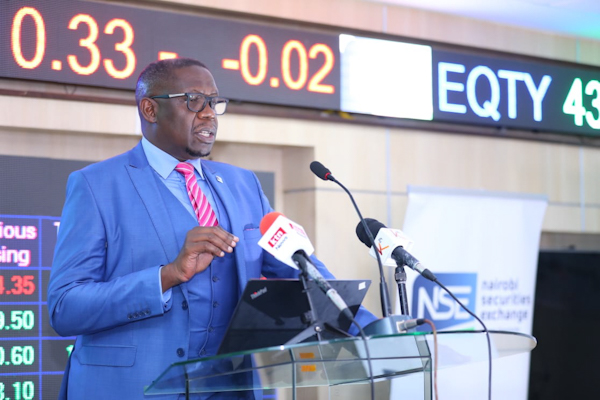The Nairobi Securities Exchange (NSE) has amended its trading rules to allow block trades to drive more liquidity in the market.
A block trade is a large, secretly negotiated securities transaction called a block deal. It is typically set up outside of open markets to limit its impact on the security price.
At the bourse, block trades shall constitute the sale of shares whose value exceeds KSh3 billion and constitute 5 per cent or more of an Issuer’s total issued shares, subject to a maximum of 24.99 per cent.
They can also constitute the sale of shares whose value is less than KSh3 billion and which comprise more than 15 per cent of an Issuer’s total issued shares subject to a maximum of 24.99 per cent.
If a block transaction is concluded outside the 30 per cent window, the trading participant(s) will be expected to seek approval from the NSE before the transaction is executed.
The amendment of the trading rules is premised on the fact that large transactions in the equities market may require something other than the current provisions that guide price movement and the need for real-time reporting of such large transactions to maintain market transparency.
Therefore, the new provision has provided more flexible pricing provisions that allow for a 30 per cent price range based on a one-month average.
“This has necessitated the need for the NSE to accommodate such transactions, which may be prearranged by the parties involved,” NSE CEO Geoffrey Odundo noted.
Odundo says international best practices in other exchanges guide the block board.
According to the block trade guiding rules, the NSE will be expected to report block transactions as off-market transactions not to affect the market statistics except for total market turnover.
Further, block transactions may be settled free of payment. Where the parties have consented to settle Free of Payment, such consent shall be filed with the Central Depository & Settlement Corporation(CDSC) for action before the transaction is concluded.
African Exchanges Linkage Project Goes Live on Cross-border Trading




